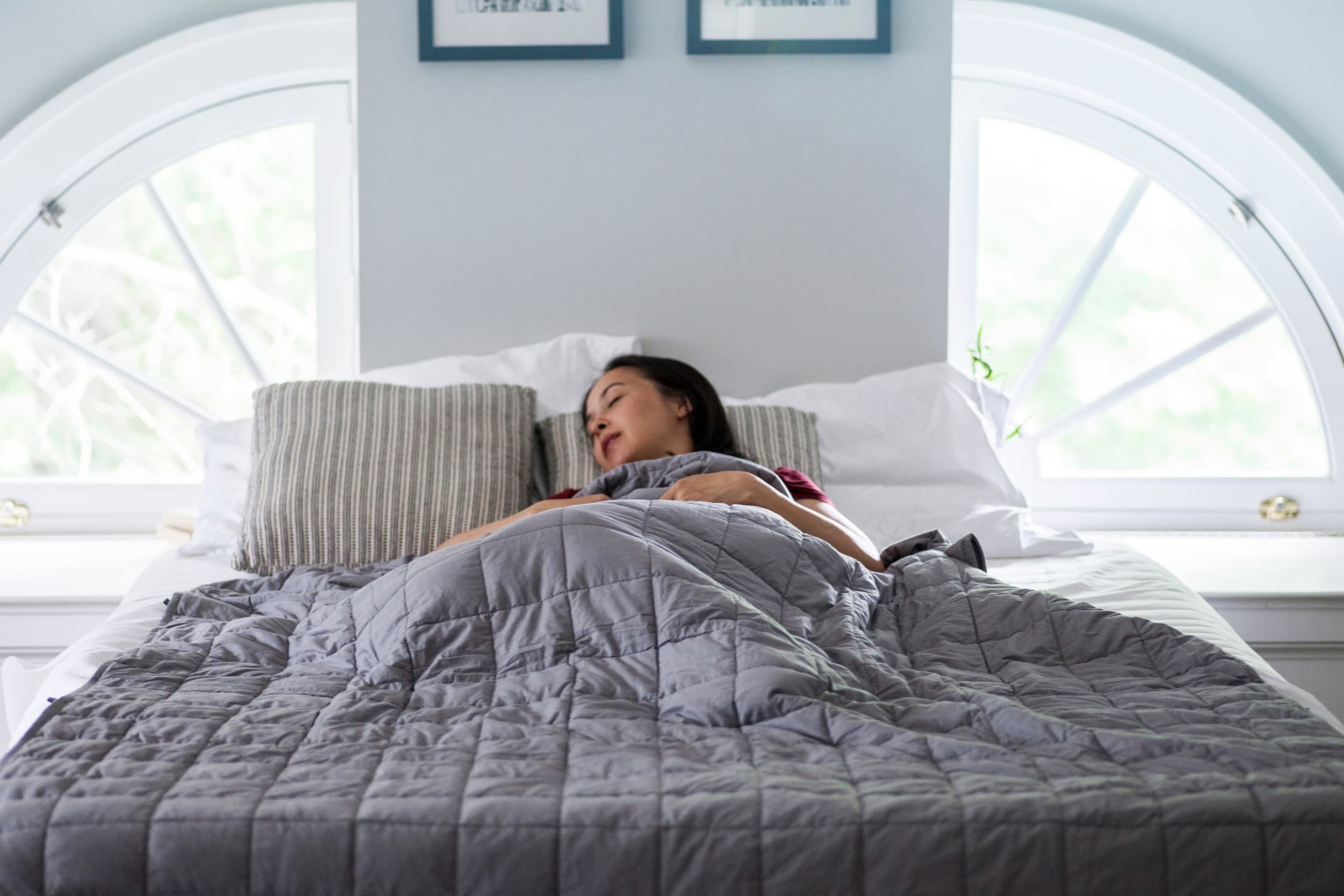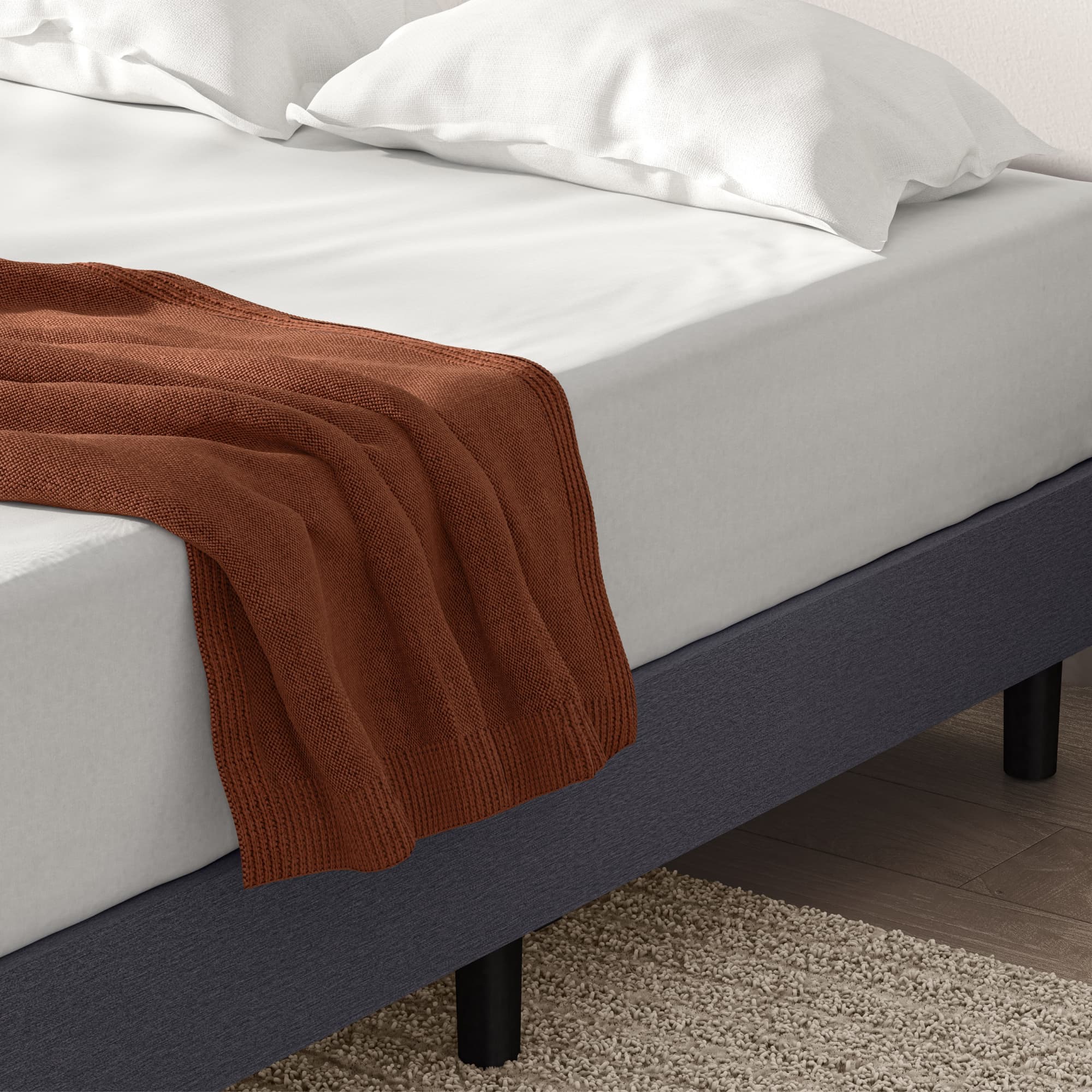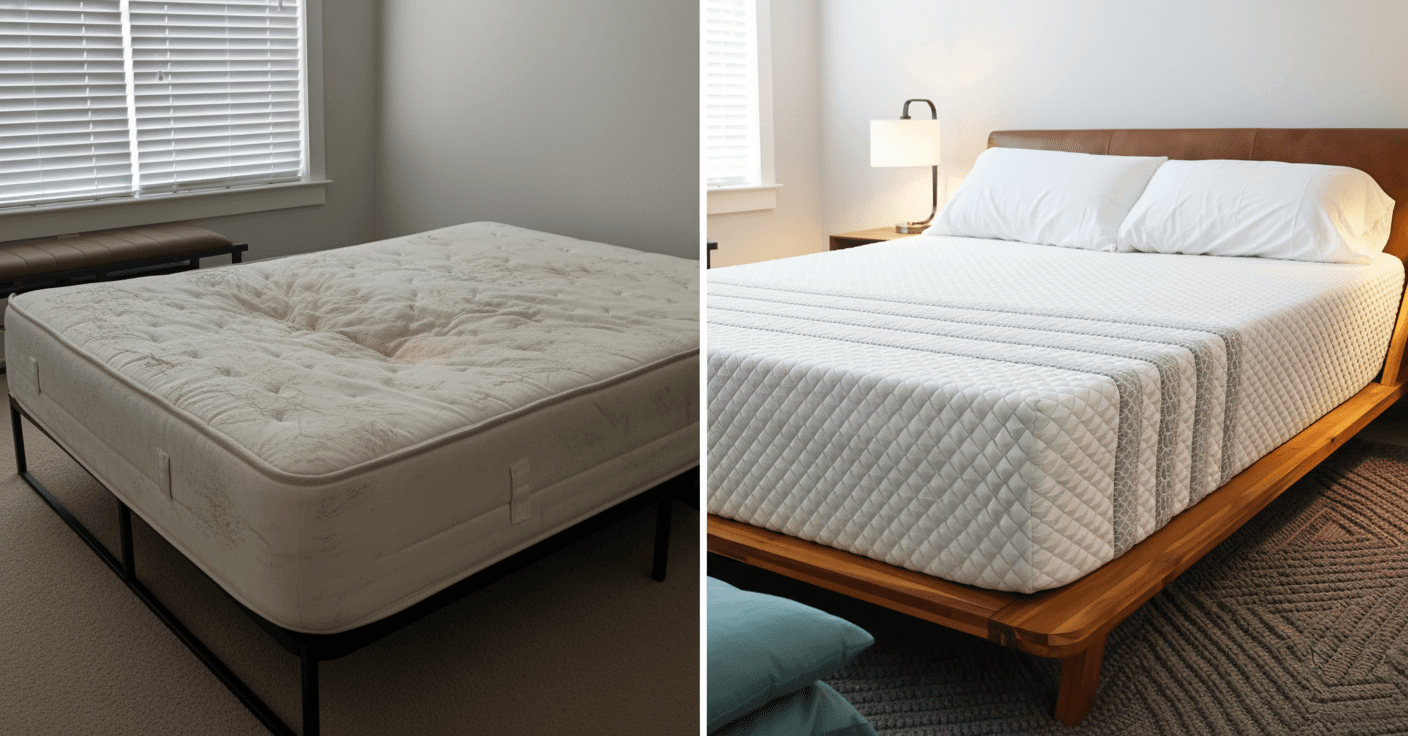Weighted blankets are everywhere and come in all different styles, sizes, and materials. Fans of them claim everything from reduced anxiety to deeper, more restful sleep. But do weighted blankets really live up to the hype?
The short answer is—yes! Weighted blankets can help calm your mind and promote better sleep, and plenty of people love snuggling up under their comforting pressure. But they do have a few potential downsides and aren’t the best option for everyone.
Let’s dive deeper into the weighted blanket pros and cons, so you can decide whether it’s the right bedding choice for you.
Pros of Weighted Blankets
Jumping right into the weighted blanket pros and cons, we’ll look at the benefits of weighted blankets first. Here’s what a weighted blanket really can offer:
Improved Sleep Quality
Weighted blankets work by providing what’s known as deep pressure touch (DPT) or deep pressure stimulation (DPS) . The blanket applies firm but gentle pressure to your whole body, which relaxes your nervous system, causing your body to switch from sympathetic nervous system mode (alert and aware) to parasympathetic mode (rest and recover).
To put it simply, the pressure from the blanket helps convince your mind and body that it’s relaxing time, not stress-out time. So your body responds by producing more of the feel-good hormones, serotonin and dopamine, as well as melatonin, calming your mind and putting it in rest mode. And with a calm mind and body, it’s much easier to fall asleep and stay asleep.
People who toss and turn at night or suffer from restless leg syndrome may also find that a weighted blanket helps limit their movement at night, allowing them to get deeper, more restful sleep.
Anxiety and Stress Reduction
Another one of the benefits of a weighted blanket is anxiety and stress relief.
Multiple studies
have shown that weighted blankets have a positive effect on all types of anxiety disorders, thanks to the DPT they provide.
In addition to overriding the fight or flight nervous system and increasing serotonin and dopamine, weighted blankets also decrease levels of cortisol, the stress hormone. As a result, people who suffer from stress or anxiety often find that their minds are calmer and their thoughts stop racing when snuggled up under a weighted blanket.
So if you find yourself lying awake at night with a million thoughts running through your head, unable to fall asleep (and then stressing out further because you can’t fall asleep), a weighted blanket can be a great tool.
Benefits for Special Populations
Weighted blankets can be especially beneficial for people with autism or sensory processing needs. Many individuals with autism find the deep, full-body pressure of weighted blankets comforting and calming. As an added bonus, in addition to the effects on their bodies’ nervous systems, weighted blankets also help fulfil their sensory needs.
People with autism often have what’s called proprioceptive dysfunction , which means that they struggle with physical self-awareness. The proprioceptive system tells us where each part of our body is in relation to our surroundings. So if this system is not functioning properly, it affects coordination and self-regulation.
Individuals with proprioceptive dysfunction and other sensory processing disorders tend to seek out sensory or tactile input because it provides a sense of comfort, security, and reassurance. A weighted blanket is an excellent way for them to get this sensory input all night long.
Cons of Weighted Blankets
Despite all the benefits of a weighted blanket, not everyone will find one cozy and comforting. There are a few cons of weighted blankets, including:
Potential Discomfort
While cold sleepers appreciate the extra warmth of most weighted blankets, hot sleepers might feel like they’re in an oven. Many weighted blankets are filled with sand, glass, or plastic beads, which reduce breathability and trap heat. The good news is there are plenty of cooling weighted blankets out there now too, individuals who experience sleeping hot can still reap the advantages of a weighted blanket without the concern of overheating.
Some people also need time to adjust to the feel of a weighted blanket. If you’re new to sleeping with one and find it uncomfortable, give it a few weeks to let your body get accustomed to the weight.
Also, it’s important to make sure you’re using the right size and weight. Aim for around 10% of your body weight, and make sure that the blanket doesn’t extend past the sides of your bed. If it’s too big for your bed, the overhang will pull down on the blanket, making it feel heavier.
That being said, some people just don’t like the feeling of a weighted blanket—and that’s okay! Weighted blanket pros and cons can vary from person to person. The best blanket is the one that helps you sleep comfortably night after night.
Weight and Size Considerations
Another one of the cons of weighted blankets is, ironically, their size and weight. They tend to be heavy and bulky, so it can be a challenge to handle, wash, and store them—especially if you have a King- or Queen-size blanket for sharing.
Some weighted blankets are machine-washable, others are spot-clean only, and some have removable covers you can wash. But fair warning—even the ones that claim to be machine-washable get extremely heavy when wet and can potentially damage your washer or dryer. At the very least, it might sound like there’s a drum line practicing in your laundry room, and you’ll likely find yourself running the dryer multiple times to get your blanket completely dry.
In addition, people with limited mobility may find that they can’t move comfortably under the weight of an appropriately sized weighted blanket. In this case, they might need a lighter blanket than the recommended 10% of body weight. Individuals with chronic pain or claustrophobia may also want to opt for a lower-weight blanket, as too much pressure can cause discomfort.
Conclusion
Now that you know all of the weighted blanket pros and cons, you can decide for yourself if a weighted blanket will send you off to dreamland or if you need a lighter option. Bedding always comes down to personal needs and preferences, so what’s right for one person may be completely wrong for another.
FAQs
Is it safe to sleep with a weighted blanket?
It’s perfectly safe to sleep with a weighted blanket—as long as you’re using the right weight and size and you don’t have any underlying health conditions that a weighted blanket might affect, like sleep apnea or asthma. You should look for a blanket about 10% of your body weight that fits on your bed with no overhang. If you’re in between blanket weights, it’s better to go with the lighter option than the heavier one.
Who should not use a weighted blanket?
While weighted blankets are beneficial for many people, some should not use a weighted blanket. People with sleep apnea or asthma shouldn’t use weighted blankets because they can put extra pressure on airways, making it harder for them to breathe. Infants and toddlers under the age of three shouldn’t sleep with weighted blankets either due to the risk of suffocation or overheating.
Can you sleep with a weighted blanket all night?
As long as you can safely use a weighted blanket and choose the appropriate size, there’s no risk to sleeping with a weighted blanket all night. In fact, you might find that it eliminates all those middle-of-the-night wake-ups, keeping you snoozing away until morning!



